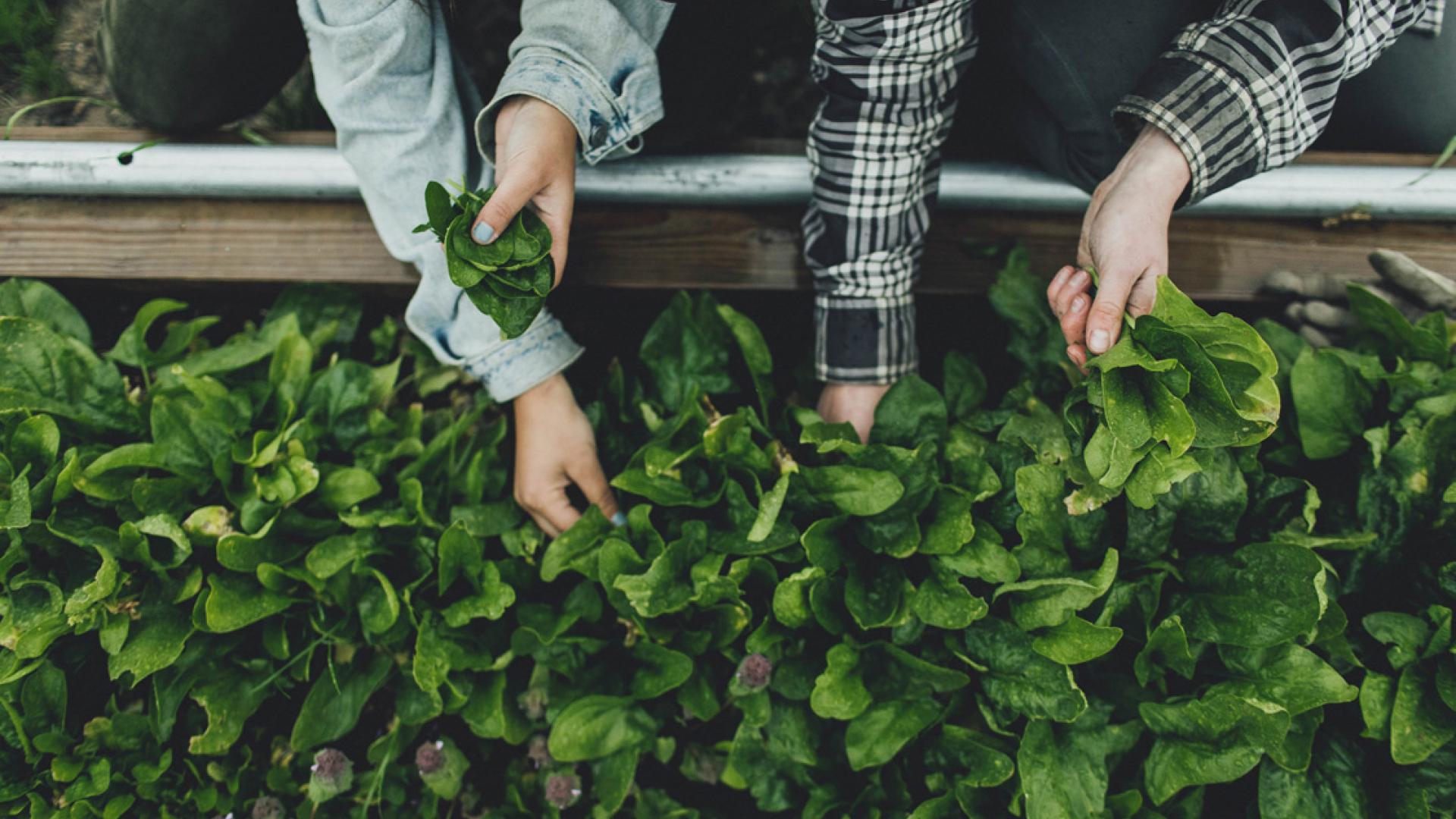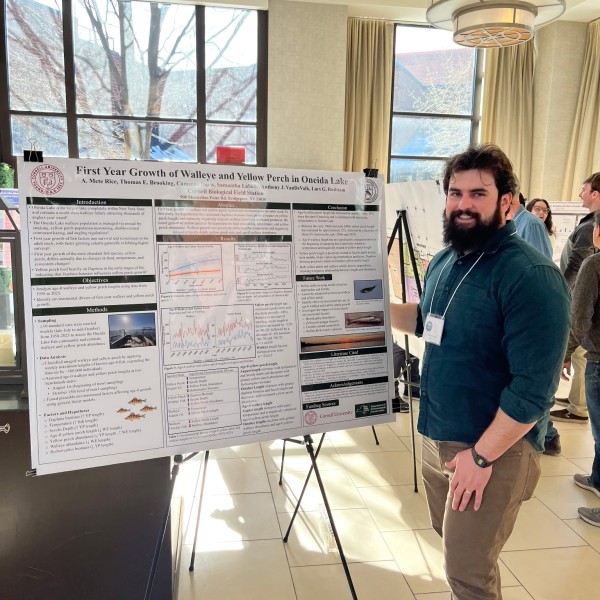As Community Food Systems minors, students engage with community-based organizations to gain rich, hands-on experiences in the food system. This narrative is a reflection of Madonna Linares ‘22's experience working with Dilmun Hill Student Farm.
Dilmun Hill is a student-run farm that has been practicing sustainable agriculture on Cornell University's campus for more than a decade. It provides students with opportunities for experiential learning, group collaboration and research.
I had just started my first farming job at Dilmun Hill, the student-run organic farm at my university. Summer had just begun, and it was still early enough in the season that the strawberries were sweet, warm, and abundant. I started that summer job a little later than my other coworkers because I took two weeks to visit family and drive my car back to Ithaca from home, out in San Diego, California.
Before my coworkers and I started our new jobs, the cohort of student managers before us had planted one row of strawberries, as a gift to us new managers. The strawberries grew ripe and ready to harvest sometime during those two weeks without me there.
During those two weeks without me there, my coworkers started this tradition where they would find the biggest, ripest, and reddest strawberries, and they would each take a bite out of it, and that would be The Sharing Strawberry. When I came back, their tradition became our tradition, and we would end nearly every day under that sweet, summer sun, sharing those sweet, summer strawberries. Everybody always got a bite.
Over those first few weeks that the strawberries stayed sweet, coworkers turned to close friends. We shared strawberries, and we shared so much more. We shared stories and laughs and songs and struggling to prep beds and shoveling mulch and sowing seeds in the pouring rain and so many strawberries. We shared knowledge and ideas and plans, and we shared the sweetness of it all.
Some days though, like those days when I didn’t exactly feel like waking up at 5:30 in the morning to go hand weed some carrots (quite a tedious task, I’d say) or during that heat wave, despite how much I loved and appreciated having the privilege of learning how to farm, I simply did not want to be out in that field. In those moments, those not-so-sweet moments, I realize just how privileged I am to be able to make a choice, to be in a position where I can decide, for myself, whether I stay out in that field or not.
When my grandmother started her first farming job, she worked in Southern California as a migrant fieldworker, mainly picking strawberries. When my grandmother did this work, she did not have the privilege of making such choices, or of making much of any choices really. She did what she had to.
Here I was at this student farm, at an Ivy League university, learning and having fun with my friends. This was a position that I chose to accept because I really wanted the job, because it was all about learning and getting experience. We were allowed to make our own schedule. When it was too hot, we didn't work; if it was raining too hard, we didn’t work. We were allowed to eat or take home as many strawberries as we wanted, as many squash and as much of any produce, really, that we grew on that farm as we wanted, whenever we wanted. We contributed the bulk of the produce we grew to mutual aid networks, and we didn’t even have to worry about making a profit because we had university funding.
And there she was, my grandmother, over in the opposite corner of the country some decades ago, willing to do anything for any opportunity that comes her way. And that’s still the reality for most farmworkers to this day. There is no time for sharing, no space for traditions. There is no choosing. There is no sweetness. There is only work.
About the author
Madonna Linares ‘22 is a senior majoring in Environment & Sustainability and minoring in Community Food Systems. Their interest in food systems began while studying environmental justice and learning about how essential land and, by extension, food sovereignty are to both mitigating further environmental destruction and to achieving social and political liberation.
For their practicum, Madonna worked as one of four managers at Dilmun Hill Student Farm, an organic, student-run farm at Cornell University. During the 2021 season, Madonna and their co-managers contributed hundreds of pounds of produce to Friendship Donation Network, a local organization that distributes food to pantries, community programs, and mutual aid networks in and nearby Tompkins County. We also offered free grocery deliveries to students experiencing food insecurity. In the fall, we partnered with Anabel’s Grocery, an accessible, affordable grocery store on campus. We typically sold produce on a pay-what-you-can, sliding scale, and we contributed all of our profits to a grant that supports anti-racism work on campus.
Read the entire Community Food Systems 2022 narrative series.





